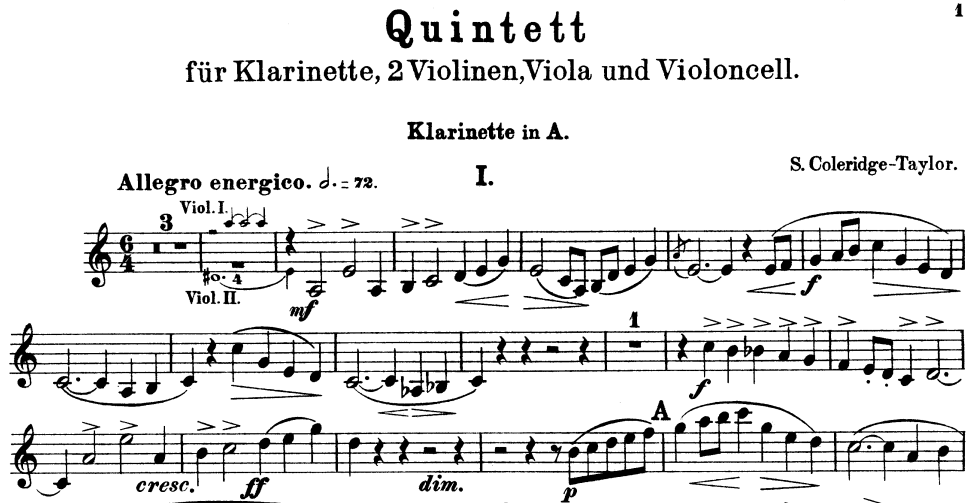In August, Black Classical Music will be released, the twenty-first release by 19'40''. It includes works by Afro-descendant composers. In this series of articles, we tell the stories of the composers and their work.
SAMUEL COLERIDGE-TAYLOR
Born in London in 1875 to a Sierra Leonean father and an English mother, Coleridge-Taylor's mixed heritage significantly shaped his musical perspective and personal identity. Raised by his mother and her extended family, he displayed exceptional musical talent from a young age.
Recognising his potential, his family supported his musical education, and he began studying at the Royal College of Music. There, he honed his skills as a violinist, but his compositional abilities truly set him apart. Coleridge-Taylor’s music drew inspiration from various sources, including African American spirituals, British folk melodies, and classical European traditions.
In 1904, Coleridge-Taylor embarked on a tour of the United States. His visit to America solidified his reputation as an internationally recognised composer and strengthened his connections with African American musicians and activists. Outside of his compositions, Coleridge-Taylor actively participated in the Pan-African movement, advocating for the rights and representation of black people. He embraced his African heritage and sought to elevate the status of black musicians and artists.
Tragically, his life was cut short when he succumbed to pneumonia in 1912 at 37. His legacy endures as organisations like the Black Cultural Archives in London strive to preserve his heritage and promote awareness of his significant role in shaping black cultural history.
Clarinet Quintet in F sharp minor, Op. 10
Clarinet, two violins, viola, and cello: Mozart had thought of inaugurating this unusual formation back in 1789. Over a hundred years later, starting in 1891, composers began systematically tackling the clarinet quintet: the turning point being Johannes Brahms' Op. 115. A few years later, in 1895, Samuel Coleridge-Taylor composed one of his early works: the Quintet for Clarinet and Strings in F-sharp minor, Op. 10, is of an almost staggering beauty. Coleridge-Taylor revealed himself to be one of the most promising composers of his generation. Unfortunately, the young musician was destined to die at the young age of 37, leaving behind a significant number of works, over eighty in total. Coleridge-Taylor's writing is highly mature and perfectly embedded within the European Romantic aesthetic in terms of form, harmony, and thematic material. The three movements presented here were recorded in Milan at the ContempoRarities Festival. The fourth movement, which was not performed, is omitted from the recording.


